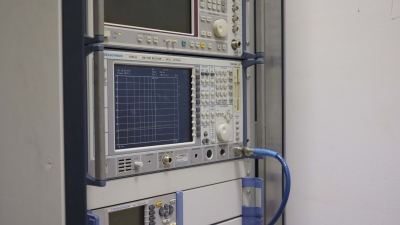
What is BBB and Why Is It Important for Radiation Exposure?
The most important organ in our body is the brain. Due to its value, it is protected from damage in a number of ways. First, there’s the skull (average thickness of 7mm), then a protective fluid (cerebrospinal) and a membrane called the meninges. All of which are defensive against physical injuries.
There’s also another protective element: a barrier between the brain’s blood vessels and the cells and other components that make up brain tissue. It’s called BBB, which stands for blood-brain barrier.
The function of the BBB is to provide a defence against infections and toxins entering the brain via the bloodstream. Some disease-causing pathogens may occur in our blood and are stopped by the blood-brain barrier so that they don’t get to the brain tissues. The BBB is semipermeable, meaning it allows some material through but prevents others from crossing. It separates the blood circulating throughout the body from the brain fluid in the central nervous system.
Blood-Brain Barrier function and history
The blood-brain barrier was discovered in the late 19th century by the German physician Paul Ehrlich. He provided an experiment in which he injected a blue dye into a mouse’s bloodstream. The dye went everywhere in the rodent’s body, except for the brain and spinal cord. The mysterious border between the brain and the rest of the body was then given the name ‘the blood-brain barrier’.
It couldn’t have been researched any further as there were no microscopes powerful enough to show the BBB itself. That all changed in the 1960s. Finally, scientists were able to use an optical instrument to determine the physical layer of the blood-brain barrier. Its name remained the same, even though after years of considering the BBB to be impermeable, it turned out to be semi-permeable (so it is not exactly a perfect barrier).
Scientifically speaking, the blood-brain barrier is formed by blood capillaries (the smallest blood vessels) in the brain which is very tightly packed together (and thus, have tighter junctions). Even if it is able to control what can pass into the brain, sometimes toxic substances may cross the border.
Some of them may even alter the brain’s functioning. Examples include antidepressants, anti-anxiety drugs, hormones, cocaine, nicotine (tobacco), methamphetamines, alcohol, ecstasy (MDMA), and similar substances. Due to their molecular structure, these substances can move across the barrier.
The blood-brain barrier has a few significant functions. As we mentioned earlier, it protects the brain from substances in the blood that may be harmful, but also from hormones and neurotransmitters in the rest of the body. Its aim is to maintain a constant environment for the brain.
However, it is not indestructible. The BBB can be broken down by a couple of factors, such as hypertension (high blood pressure), hyperosmolarity (a high concentration of a specific substance in the blood), infection, microwaves, and radiation.
Blood Brain Barrier and exposure to radiation
The impact of radiation on the blood-brain barrier was heavily studied in the 1970s. Doctor Allan Frey, USA, one of the most well-known scientists in the field of radiation, provided us with a relevant scientific experiment. First, he injected dye into the blood system of rats and then, he exposed them to microwave radiation. It took a few minutes for the dye to cross the BBB of the rodents. Doctor Frey published his results in 1975 and he continued his work.
After Allan Frey’s discovery, a lot of research was done in an attempt to find a link between radiation exposure and breaking down the BBB. Most of the research was tested on rodents. Dr. Leif Salford from Lund University, Sweden, has proved that radiation not only makes the BBB leak but it also affects mammalian brains.[1]
A different study, conducted by Dr. Henry Lair from Seattle, USA, has shown[2] that rats exposed to radiation forget what they have learned. It is also strictly connected with the BBB being broken down by radiation’s impact.
We need to be aware of the fact that radiation may also have an impact on the human brain. It is believed that ionizing radiation is harmful to humans but there haven’t been as many studies on non-ionizing radiation. One of the most appreciated neurosurgeons, Charlie Teo (Australia), who deals with brain tumours, says with certainty that radiation from mobile phones is harmful to the human brain.[3]
In many studies regarding the BBB and radiation, scientists are concerned about the possible risk of RF exposure in humans. They recommend that this topic should be investigated in the future as the research on rodents showed such disturbing results.[4]
Knowing how the BBB works, helps us to imagine how radiation may actually harm our health. The blood-brain barrier is one of the most complicated and important protective systems in our body and the fact is, it could be broken down by radiation exposure.
Sources:
Explainer: what is the blood-brain barrier and how can we overcome it?
The blood–brain barrier: an overview: Structure, regulation, and clinical implications
If you’re interested in sharing your experiences with us or writing a guest post for us, send us an email via hello@mudita.com! Please feel free to get in touch via social media (send us some photos or videos too), you can find us on Facebook, Twitter and Instagram, let’s connect!
To learn more about Mudita, take a look at our website and our other posts. If you enjoyed reading this article, please share and recommend it!
Related stories

Mudita Pure Verkotan Results
Mudita Pure’s first prototype was tested at Verkotan (a FINAS and ILAC accredited testing laboratory) in Finland.

EMF Conference 2019
Mudita had the opportunity to be part of the first Electromagnetic Fields Conference (EMFC) 2019, which took place in California.

10 Tips on How to Reduce Mobile Phone Radiation: Part 2
Technology has become an integral part of our lives and makes a lot of things easier but it can also have a negative effect on us.
If you'd like to receive the best stories from our blog, keep up to date with our progress and get notified about our product releases and special discounts.